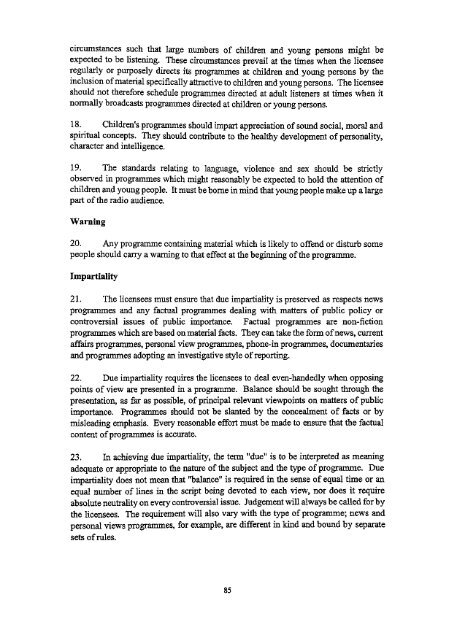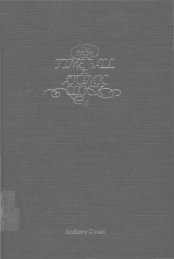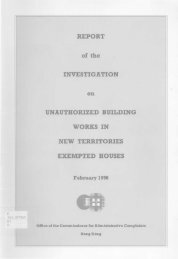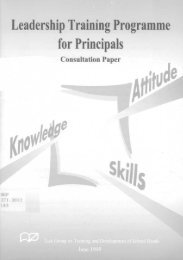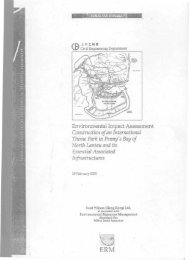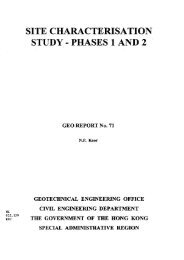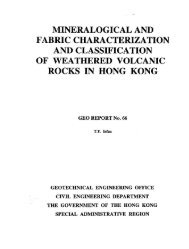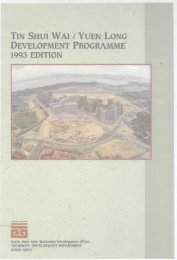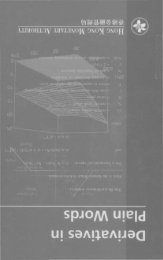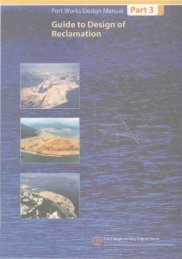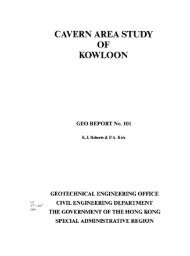(a) m - HKU Libraries - The University of Hong Kong
(a) m - HKU Libraries - The University of Hong Kong
(a) m - HKU Libraries - The University of Hong Kong
You also want an ePaper? Increase the reach of your titles
YUMPU automatically turns print PDFs into web optimized ePapers that Google loves.
circumstances such that large numbers <strong>of</strong> children and young persons might be<br />
expected to be listening. <strong>The</strong>se circumstances prevail at the times when the licensee<br />
regularly or purposely directs its programmes at children and young persons by the<br />
inclusion <strong>of</strong> material specifically attractive to children and young persons. <strong>The</strong> licensee<br />
should not therefore schedule programmes directed at adult listeners at times when it<br />
normally broadcasts programmes directed at children or young persons.<br />
18. Children f s programmes should impart appreciation <strong>of</strong> sound social, moral and<br />
spiritual concepts. <strong>The</strong>y should contribute to the healthy development <strong>of</strong> personality,<br />
character and intelligence.<br />
19. <strong>The</strong> standards relating to language, violence and sex should be strictly<br />
observed in programmes which might reasonably be expected to hold the attention <strong>of</strong><br />
children and young people. It must be borne in mind that young people make up a large<br />
part <strong>of</strong> the radio audience.<br />
Warning<br />
20. Any programme containing material which is likely to <strong>of</strong>fend or disturb some<br />
people should carry a warning to that effect at the beginning <strong>of</strong> the programme.<br />
Impartiality<br />
21. <strong>The</strong> licensees must ensure that due impartiality is preserved as respects news<br />
programmes and any factual programmes dealing with matters <strong>of</strong> public policy or<br />
controversial issues <strong>of</strong> public importance. Factual programmes are non-fiction<br />
programmes which are based on material facts. <strong>The</strong>y can take the form <strong>of</strong> news, current<br />
affairs programmes, personal view programmes, phone-in programmes, documentaries<br />
and programmes adopting an investigative style <strong>of</strong> reporting.<br />
22. Due impartiality requires the licensees to deal even-handedly when opposing<br />
points <strong>of</strong> view are presented in a programme. Balance should be sought through the<br />
presentation, as far as possible, <strong>of</strong> principal relevant viewpoints on matters <strong>of</strong> public<br />
importance. Programmes should not be slanted by the concealment <strong>of</strong> facts or by<br />
misleading emphasis. Every reasonable effort must be made to ensure that the factual<br />
content <strong>of</strong> programmes is accurate.<br />
23. In achieving due impartiality, the term "due" is to be interpreted as meaning<br />
adequate or appropriate to the nature <strong>of</strong> the subject and the type <strong>of</strong> programme. Due<br />
impartiality does not mean that "balance" is required in the sense <strong>of</strong> equal time or an<br />
equal number <strong>of</strong> lines in the script being devoted to each view, nor does it require<br />
absolute neutrality on every controversial issue. Judgement will always be called for by<br />
the licensees. <strong>The</strong> requirement will also vary with the type <strong>of</strong> programme; news and<br />
personal views programmes, for example, are different in kind and bound by separate<br />
sets <strong>of</strong> rules.<br />
85


